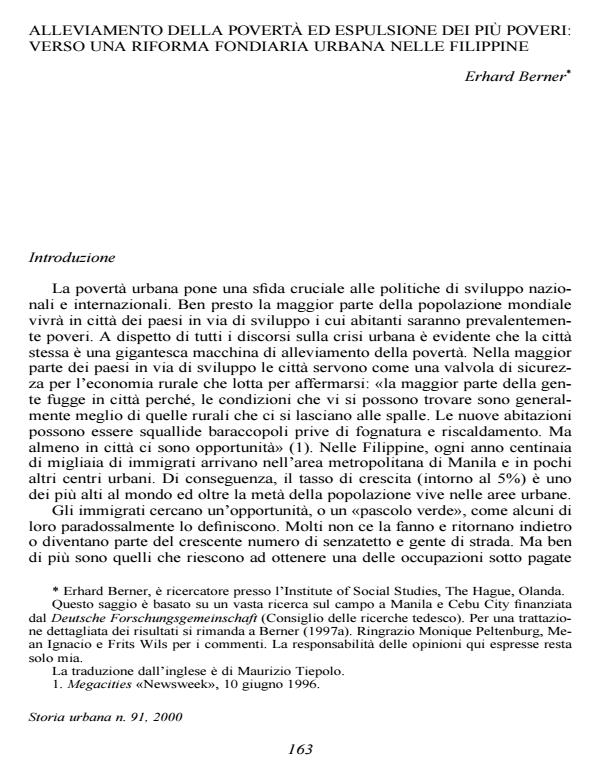Alleviamento della povertà ed espulsione dei più poveri: verso una riforma fondiaria urbana nelle Filippine
Journal title STORIA URBANA
Author/s Erhard Berner
Publishing Year 1 Issue 2000/91
Language Italian Pages 18 P. File size 119 KB
DOI
DOI is like a bar code for intellectual property: to have more infomation
click here
Below, you can see the article first page
If you want to buy this article in PDF format, you can do it, following the instructions to buy download credits

FrancoAngeli is member of Publishers International Linking Association, Inc (PILA), a not-for-profit association which run the CrossRef service enabling links to and from online scholarly content.
Conventional policies of urban poverty alleviation have proven to be largely ineffective. They have, in particular, failed to defuse the worsening housing crisis in the large cities of the developing world. Shortcomings in funding and implementation notwithstanding, the Philippine «Community Mortgage Program» represents a promising paradigm shift. It allows squatter associations to acquire land by means of state-guaranteed credit which is to be repaid over a period of 25 years. The resulting installments are well below the rent for a single room in the same area, and thus acceptable to most residents. The CMP is thus effectively addressing one of the crucial problems of squatters, namely precarious access to urban land and insecurity of tenure. The results of our studies in Manila and Cebu City, however, indicate that the program always excludes a substantial part of the community members, among them the dire poor. The unintended consequence is a division of communities which often turns into violent conflicts.
Erhard Berner, Alleviamento della povertà ed espulsione dei più poveri: verso una riforma fondiaria urbana nelle Filippine in "STORIA URBANA " 91/2000, pp , DOI: